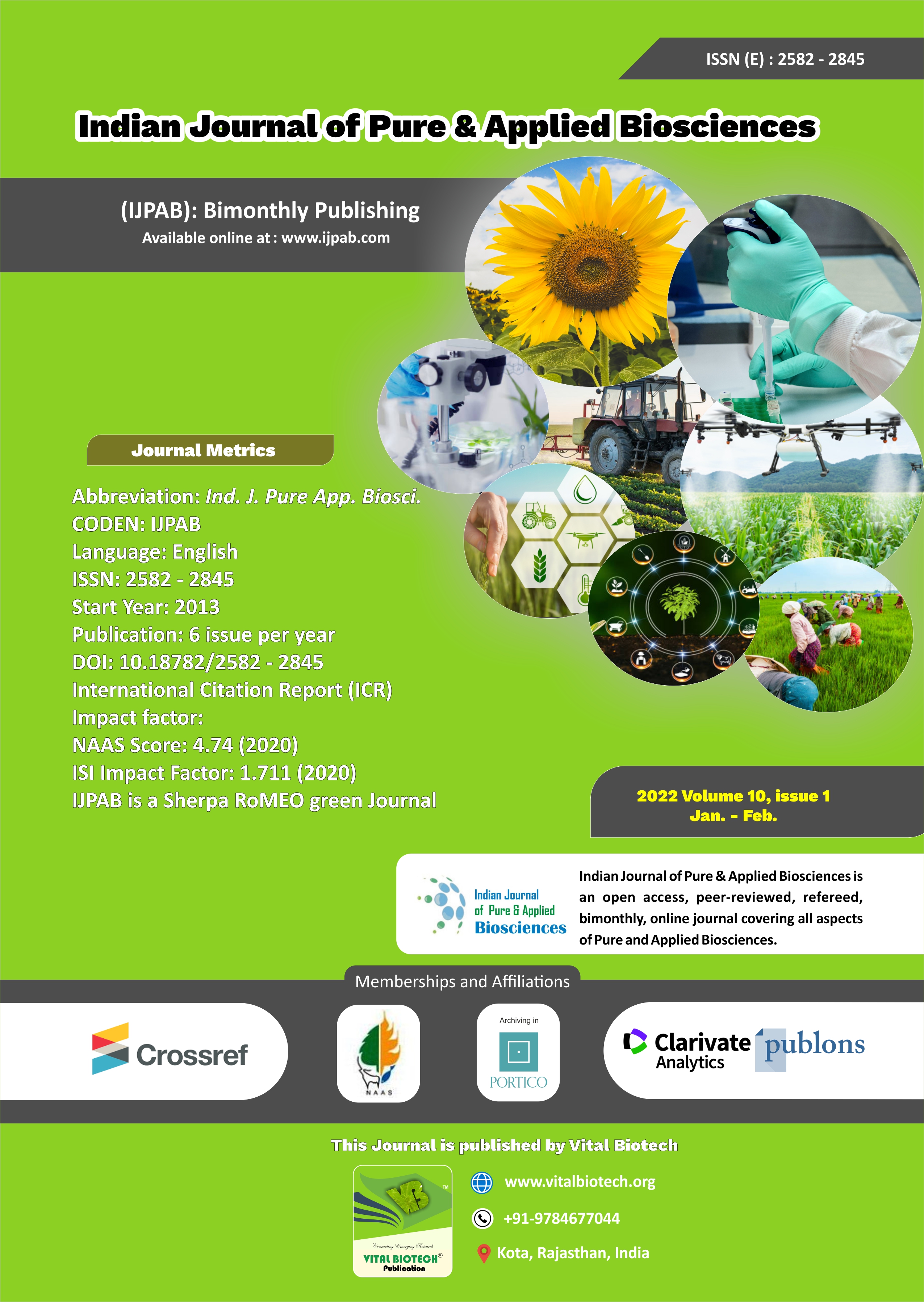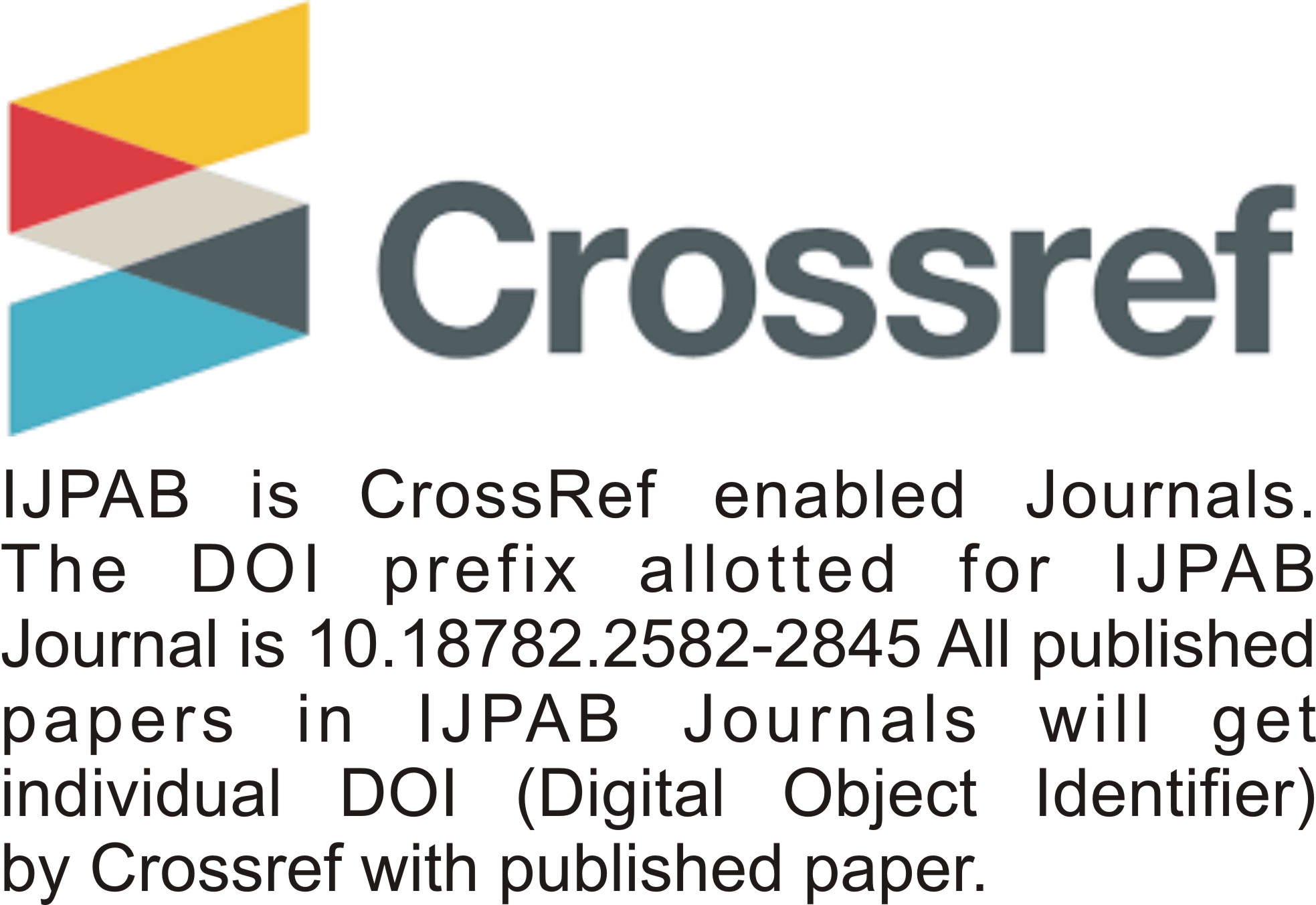-
No. 772, Basant Vihar, Kota
Rajasthan-324009 India
-
Call Us On
+91 9784677044
-
Mail Us @
editor@ijpab.com
Indian Journal of Pure & Applied Biosciences (IJPAB)
Year : 2022, Volume : 10, Issue : 1
First page : (40) Last page : (46)
Article doi: : http://dx.doi.org/10.18782/2582-2845.8856
Effects of Heavy Metals on Soil Properties and their Biological Remediation
Shahzad Ali1, Sami Ullah2, Hasnain Umar1, Arsalan Saghir1, Sohaib Nasir3, Zarmina Aslam4, M. Hamza Jabbar3, Zain ul Aabdeen3, Rimsha Zain5
1Department of Soil and Environmental Sciences, University of Sargodha, Sargodha 40100, Pakistan
2Department of Forestry, University of Sargodha, Sargodha 40100, Pakistan
3Department of Plant Pathology, University of Sargodha, Sargodha 40100, Pakistan
4PMAS-Arid Rawalpindi, Rawalpindi 6800, Pakistan
5Women University Multan, Multan 59300, Pakistan
*Corresponding Author E-mail: alishahzad8605683@gmail.com
Received: 9.12.2021 | Revised: 12.02.2022 | Accepted: 19.02.2022
ABSTRACT
Such elements have an atomic density of more than 4g/cm3 or 5 times or more than water is heavy metals, i.e. Nical (Ni), silver (Ag), cobalt (Co), iron (Fe), manganese (Mn), lead (Pb), arsenic (As) and cadmium (Cd). In these, some are essential, i.e. iron (Fe), zinc (Zn), copper (Cu), manganese (Mn), molybdenum (Mo) and Nical (Ni). Rapid increments in industry, agriculture, and urbanization produce non-degradable toxic materials, i.e. heavy metals. Heavy metals are also produced by natural resources but higher values reflect anthropogenic accumulation. Soil is one of the valuable, essential, non-regenerative resources. Many soil properties, i.e. pH, organic contents, ion exchange capacity, texture, microbial growth, microbial density or metabolic processes, are deteriorated by the heavy metals accumulation. Heavy metals are a non-degradable part of the soil environment. Soil remediation is necessary due to high productive pressure with food security concerns. Different Physico-chemical and biological practices are in practice to remediate the soil environment. Mainly use of amendments (liming material, organic contents and adequate fertilizer rate) and plants (phytoremediation and phytodegration) are the most economical cost-effective and environmentally well-sounded techniques for cleanup of the soil environment. Amendments help to reclaim the soil's Physico-chemical properties, microbial community establishment and bond different heavy metals to reduce their mobility. Prevention of the entry of heavy metals into the food chain is a major goal of phytoremediation. Physical with genetic engineering approaches must be practiced to make new genetically controlled plants used in future prospects to remediate the soil.
Keywords: Heavy metals, remediation, Physico-chemical, non-degradable, genetic engineering.
Full Text : PDF; Journal doi : http://dx.doi.org/10.18782
Cite this article: Ali, S., Ullah, S., Umar, H., Saghir, A., Nasir, S., Aslam, Z., M. Jabbar, H., ul Aabdeen, Z., & Zain, R. (2022). Effects of Heavy Metals on Soil Properties and their Biological Remediation, Ind. J. Pure App. Biosci.10(1), 40-46. doi: http://dx.doi.org/10.18782/2582-2845.8856


